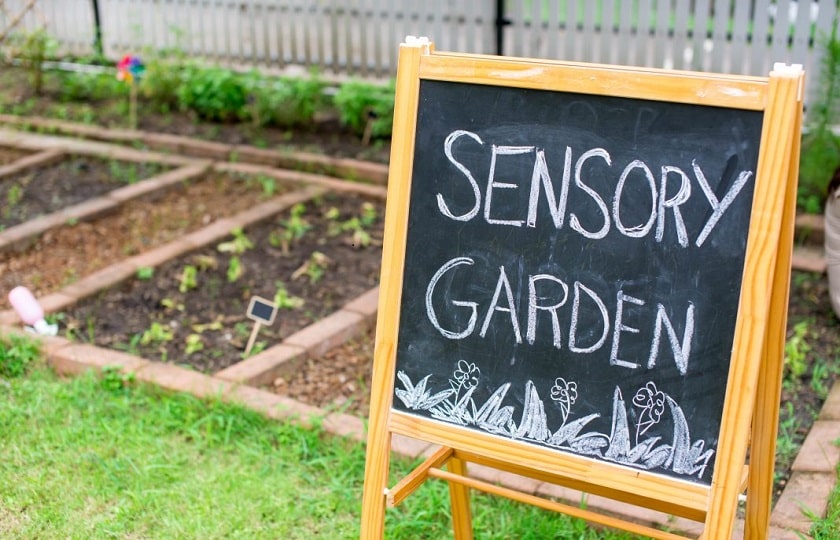Nature writer Richard Louv hit the nail on the head when he said that if parents want their kids to build a meaningful relationship with nature, they should ensure their kids truly have fun in the Great Outdoors. Spending time outside, enjoying an outdoor play, and living the beauty and wonder of nature firsthand boosts children’s physical and mental health in many ways, helping them to fight obesity and stress. If you want to create a natural haven in your own home, one that your kids will want to spend many hours on sunny days, you might find the following tips useful. Here are some tips for creating stunning sensory garden.
What Is A Sensory Garden?
A sensory garden is one that stimulates as many senses as possible, including sight, sound, touch, smell and taste. These gardens are often recommended for those with mental disorders such as anxiety since they can relieve stress and induce a calmer, more positive state. A sensory garden does not have to be big to do the trick; even if you have a small space on your terrace or a free window box, you can fill it with fragrant flowers, herbs, and other plants that have a positive, transformative effect.
The Senses Of Sight And Touch
To stimulate this sense, colour is key. Flower boxes filled with perennial flowers such as coneflowers, daylilies, giant alliums, and New England asters are easy to maintain and provide a wide array of colour to delight. To soothe stress, opt for flowers in cool colours such as blue, purple and green. To energize, bright yellow, red and orange flowers are a perfect choice. If flowers or plants have different needs of sunlight and water, use large planters for sun-loving plants and smaller ones for plants you may have to bring indoors part of the day because they love the shade. Ensure that the pots you choose have visual and tactile appeal. Clay, for instance, is a material that appeals to the sense of touch because of its smoothness. Encourage children to touch flowers and plants gently so they do not tear leaves and other delicate parts.
The Sense Of Sound
Soothing sounds that make a perfect complement to the rest of your garden can be provided by wind chimes or flowing water fountains. Many garden centres sell big, intricate fountains, but even if you have a small budget, a small fountain will be enough to calm your mind with its delicate sounds. Ensure the sonorous features you choose suit the rest of the garden in terms of style and influence.
The Sense Of Taste
Include a few edibles in your garden. You can set aside a small plot on which to grow lettuce, tomatoes, carrots and other vegetables if you have space for it. This is a wonderful way for children to see vegetables actually growing in the ground and to harvest the food they wish to eat. If you have a small terrace in your outdoor space, simply buy a few pots and grow herbs like rosemary and basil. These will undoubtedly be used very quickly, so be prepared to replace the ingredients your kids use to help you whip up great meals.
A sensory garden is an ideal way for children to get closer to nature. In order to pamper all the senses, it should ideally have plants that appeal to more sense than sight. For sound, simply buy cool wind chimes or a water fountain, or play chill-out music while your children are working or playing in the garden.
- Baby Monitors with Noise Monitoring: How They Work and Why They Matter - October 2, 2025
- Attachment Parenting Guide: Principles, Practices, and What to Expect - September 9, 2025
- Understanding Your Baby’s Cry: A Parent’s Mini Guide - June 23, 2025
- Bottle vs. Breastfeeding: What Works for You and Your Baby - June 18, 2025
- 10 Yoga Poses For Kids at Home: Benefits Of Yoga For Kids - June 12, 2025
- Parenting Guide to Child Development: Key Milestones from Birth to 10 Years - June 4, 2025
- Summer Vacation Plans Ideas with Kids - May 27, 2025
- Nutritious Dried Fruit Treats for Toddlers (16–24 Months) - May 25, 2025
- Importance of Screen Time Management for Kids - May 24, 2025
- The 6 Most Common Pregnancy Concerns First-Time Moms Have - May 23, 2025














